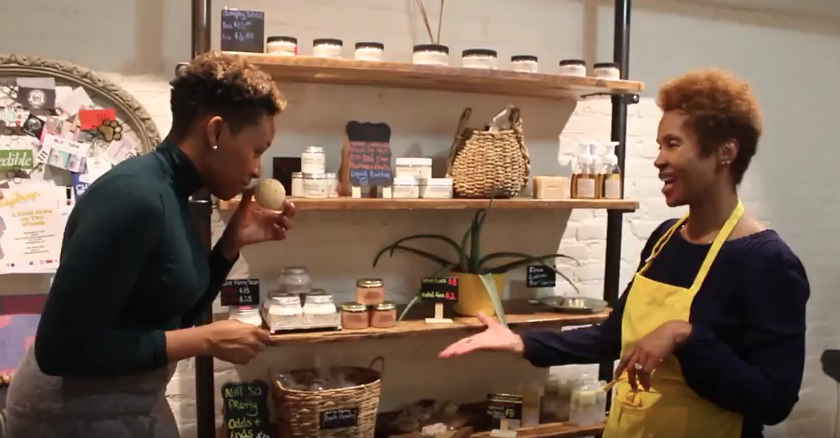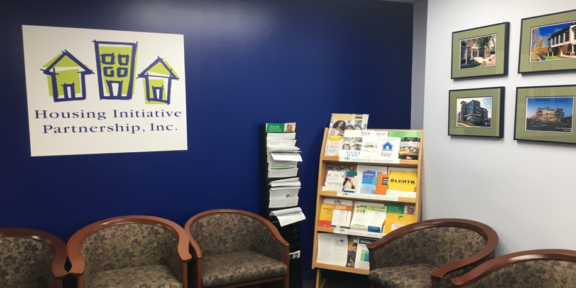In his worn red campaign T-shirt, a long-john shirt, jeans and Air Force 1 Nike sneakers, Che “Rhymefest” Smith is not your typical panelist at the 2011 Future of Music Coalition Policy Summit. No one else is really dressed up, but Rhymefest’s casual ensemble belies the fact that he is the most outspoken, engaging speaker on the panel.
Broadcast live via webcast, the “Local Matters: Music Scenes and Community Building” panel was about how musicians and their supporters can help build and reinforce local creative communities. It was a part of the Future of Music Coalition Policy Summit last week in Lohrfink Auditorium at Georgetown University Hotel and Conference Center.
Rhymefest was a last-minute addition to the panel.
In its 10th year, the summit brought together musicians, radio show hosts, entrepreneurs, community activists and anyone else remotely interested in the music business. The summit’s discussion panels, networking and information segments, and mentoring sessions fueled discussions on the state of music in big industry and on a local level.
“It is important for artists to be in creative roles,” says Rhymefest, “because artists are creators and with a shortage of resources, you need creative solutions.”
Rhymefest had some creative solutions when he decided to run for alderman of the 20th ward in Chicago. His idea of a “whole system solution to a whole system problem” seemed far-reaching, but some innovative ideas garnered him support.
One idea was to give back 15 percent of his salary as alderman to the community in the form of small business loans. These loans would be used to reinvest in the community by supporting local businesses.
He also suggested keeping schools open until 8 p.m. to help force parents and schools to be involved with one another. He hoped that his unconventional methods would bring unconventional results.
But how does a rapper decide to become a politician?
The Chicago native says that he stayed in Hawaii for a time last year with his friend Kanye West while he was creating his album “My Beautiful Dark Twisted Fantasy.” Upon his return, a young man in his community told him, “You must have fell off”— meaning, you must not be what’s popular anymore. When he asked the boy why he thought that, the boy responded, “Because you’re here.”
This was eye opening for Rhymefest. Where he is from, it is the norm for people to “get on and then leave the community behind; leave it open to crime and gentrification.” The mentality of people, especially young ones, is that if you are there, then you must not be successful. Rhymefest wanted to change this local attitude. He wanted people to see that they didn’t have to look elsewhere for solutions, but could start building solutions at home.
Despite his enthusiasm, Rhymefest told the “Local Matters” panel, many couldn’t see past his occupation as a rapper when he ran for alderman. He was not only being scrutinized, but also rap music itself. The arts were being put on trial, he said.
“I don’t know Lil’ Wayne, but I had to answer for all of his songs.”
Later he explained what he had to say to older constituents who weren’t as receptive to a rapper running for office.
“Rap music didn’t create the crime and foreclosures that we are seeing,” he told them. “The people that you kept voting for did. They allowed this to happen.”
Brandy Doyle, policy director at Prometheus Radio Project, also knows the importance of keeping the community engaged and involved at a local level. For Doyle, who advocates for low power radio stations on a local level, this is a subject dear to her heart. She got her start in community radio at WMNF in Tampa, Fla.
In July, the Federal Communications Commission proposed a minimum number of frequencies for local community radio. This would help keep big radio from taking over all of the frequencies and allow local groups in urban areas to have a voice on public airwaves. Doyle continues to advocate and inform communities to help get as many local stations going as possible.
Rhymefest also discussed the change in the way industry works for artists. “You don’t get a record deal making good music,” he said. “You get it creating a demand for self.” This is now done via social media such as Twitter, Facebook and YouTube. The demand that is created for artists is what will get them paid.
Getting paid for their work is a priority for musicians, just like for everyone else. That’s why Rhymefest worked on H.R. 848, the Performance Rights Act, which deals with licensing and royalty payments of sound recordings.
Though he lost his bid for alderman this year by a small margin, Rhymefest is continuing to make contributions by using music to empower his Chicago community.
His Power of Purpose program seeks to “civically engage and organize youth through workshops” held in music studios. Participants sign up through local non-profits and have an opportunity to see how a real music studio works while recording their own songs. They learn to create songs as outlets for their fears, frustrations and anger.
“You don’t have to look far to accomplish what you want,” Rhymefest wants young people to know. “Kanye and I grew up together, right down the block,” he says, referring to his friend who is now one of the top selling rap artists of all time.
“Everything you want is community based.”



